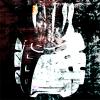-
Posts
982 -
Joined
-
Last visited
Content Type
Profiles
Forums
Gallery
Events
Blogs
Store
Raffles
Blog Comments posted by BioGio
-
-

I approve of this thread.
-
Hey, welcome the blogs!
-
While I appreciate the concept of appreciation and even the concept of appreciation of appreciation of appreciation, I cannot appreciate the appreciation of Takuma's inability to appreciate your appreciation of mutual appreciation.
-
I went through the entire first chapter and made a bunch of comments on grammar, style, and so on. (There are really a lot of comments at first, typically pointing out some general mistakes you make.) At the end, I placed some general comments on plot, characters, grammar, and style. The document is here. If you have any difficulty reaching it, please let me know so I can post it some other way.
All in all, it was very easy to get wrapped up in reading this, even while searching for grammar errors. You write pretty well in general, so I had to comb through to find major style issues. My major recommendation is just that you really polish this up. Proofread very thoroughly and add in description when it's necessary.
-
If you don't want to get hit by the word filter, why not just replace the offending words with "darn" or "dang"?
Anyway, I'm going to write up a big old review of the first chapter, so you can probably, ideally expect that by tomorrow afternoon.
-
Well, plenty of books experiment with formatting. I could name a few books that use a script style to introduce dialogue, but the difference is that they all use this for a specific reason.
Paddy Clark Ha Ha Ha was out of chronological order and read like a ten-year-old's speech, but that was for the purpose of evoking an emotional response. Experimental novels are generally not the best place to get an idea of proper formatting because, for any weird format or style you can think of, a book somewhere has used it. For example, House of Leaves uses footnotes, color, empty space, backwards text, and a lot of other formatting oddities, but that doesn't actually mean that its formatting is one to be emulated without a goal in mind. (Most authors of fiction would actually really recommend against using footnotes unless they are both common and purposeful.) In other words, the choice to use a new or unusual format should be a very deliberate one, since it will inevitably call attention to itself. And if there isn't a clear point to this style, it will only serve to alienate the reader.
However, setting dialogue off from other text is quite effective for an author or editor (since it notes, "This is where the style should change and become conversational."), so it makes sense to keep it for yourself. But it doesn't have a purpose beyond that, so you should err on the side of convention.
-
Have we already forgotten about Phineas and Ferb, LL? For shame, man.
-
Yeah, I thought that I saw something about GF a while ago. But the point is really that it's taking a long time to become a Thing that People Recognize and/or Hate.
-
Just glanced through, and I wanted to know about your formatting. Why do you have hyphens prior to each line of dialogue? That's basically never done in prose, so you should definitely remove it (assuming that the hyphens aren't just to mark dialogue for your own sake as the author).
-
That's just what a Replicant would say in the first place!
And then John was a zombie.
I AM THE DEMONS. IT'S ME. OH GOD THE HUMANITY!1!!
-
You are aware that no one has been taking this seriously, right?
(Also you can't fail the Voigt-Kampff on the Internet because it requires the machine of the same name.
 )
) -
1. Thank him, although I already have a wallet.
2. Encourage him to pursue his hobby and learn more about entomology. (BTW, do you mean that he's my son?)
3. You're supposed to hold still until it gets bored and leaves, right? Better than risking agitating it and getting stung more.
4. I'm a robot. (But I thought that test involved just finding Tony and asking whether we should help...)
5. Loving, compassionate, intelligent, helpful. Others.
9. Why should I care about other people (years ago) eating meat (that may even be fake)? I don't hate my friend's family for eating meat from a live goat in China, and that's more immediate than a movie.
-
For future reference: http://www.isup.me/
-
combust the air
I thought that it was "officially" a product of using chi and changing it into fire. Since, you know, air and heat alone won't allow for combustion. (Then again, Bryke are art majors, so I doubt they talk all too much about the mechanics of combustion.)
-
They'll do anything to garner a little more interest. Filming it in 3D got us talking, so I guess it's worked.
-
Isn't it just such an interesting concept? Almost... inspiring, I guess you could say, to think that human reason could have so much ability.
Oddly, I was talking about Platonic realism and idealism (specifically, its application to geometry) earlier today.
-
"Posted by Phyoohrii in BZP Issues"
Proto is an issue?
-
Oops, my bad. I was working on a science project, so I guess the subject matter floated across. Fix'd for clarity.
-
How do they know that the Higgs particle decays into other particles, if we have never seen a Higgs particle? It doesn't make sense. :/
I know efforts are taken, but still, it's really hard to believe they found this thing.
How do they know? Years of theoretical particle physics--basically, asking "What would cause *mass* and how would it work?" (and then answering the question, of course, using models and related problems and a lot of other esoteric things). It's neither something that can be explained easily to, or really understood by, the lay man (including myself). However, not understanding how something (i.e., scientific inquiry on this sort of a bizarre, indirect level) works doesn't mean that it doesn't work.
-
Make a blog entry.
Dump quotes in it.
Link to it in the content block.
Congratulations, your problem is now solved, and your blog will no longer have a bunch of colored text plastered on the side. Everyone wins.
-
-
@Ballom: His sentence structure lends itself to really unwieldy, comma-littered, prose. Long sentences often need a lot of punctuation. Plus, there are some instances of comma abuse, such as "the reason, that [whatever]."
@Sumiki: He haunts us even from his grave!
-
It was bad enough when it became called 'Syfy'.
I enjoyed that on the basis of Polish slang.
Also DINOTRUX looks far more cerebral than anything Syfy has produced.
-















The Master
in blogs_blog_1422
A blog by BioGio in General
Posted
Well, then go check out the new trailer!
In brief, it's about a guy with PTSD who ends up as an ardent follower and even leader of a cult. The names of those involved are just as important, though. I mean, check out that cast and director!